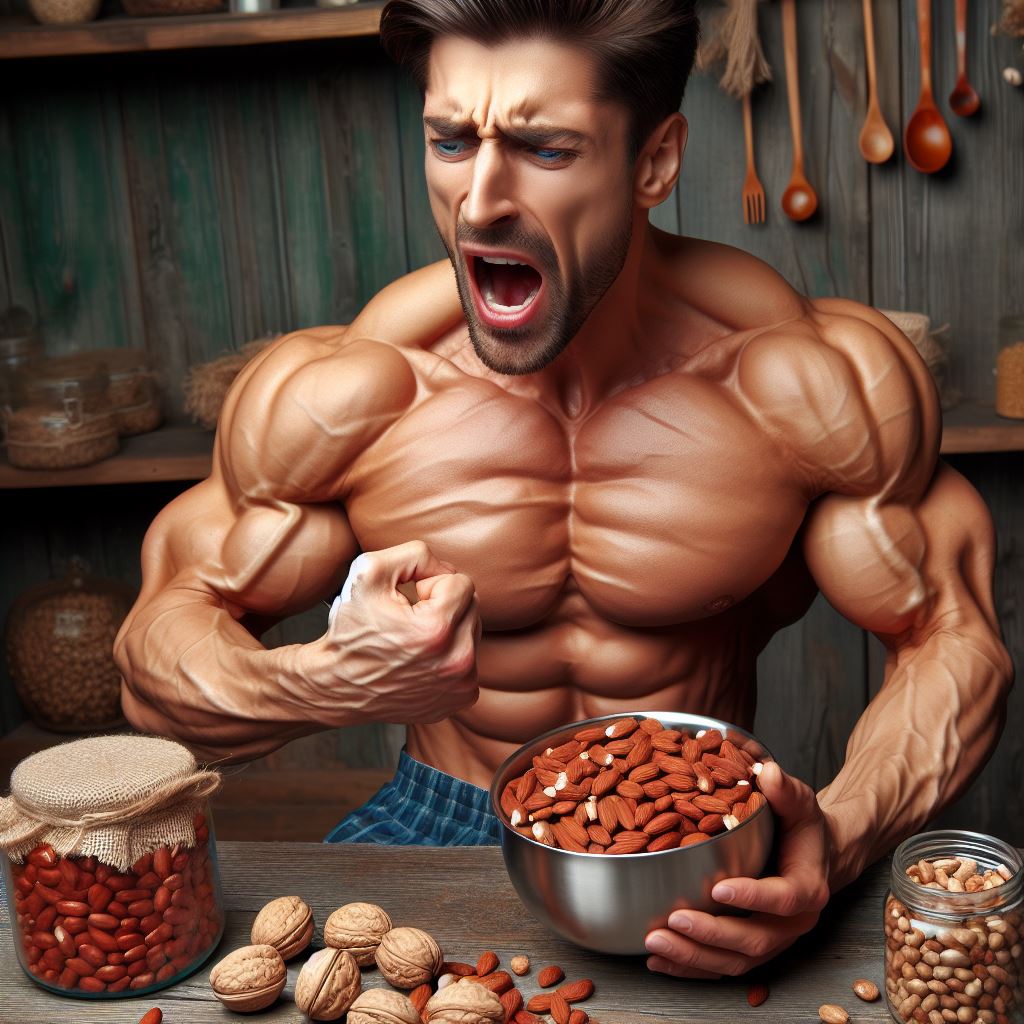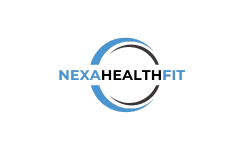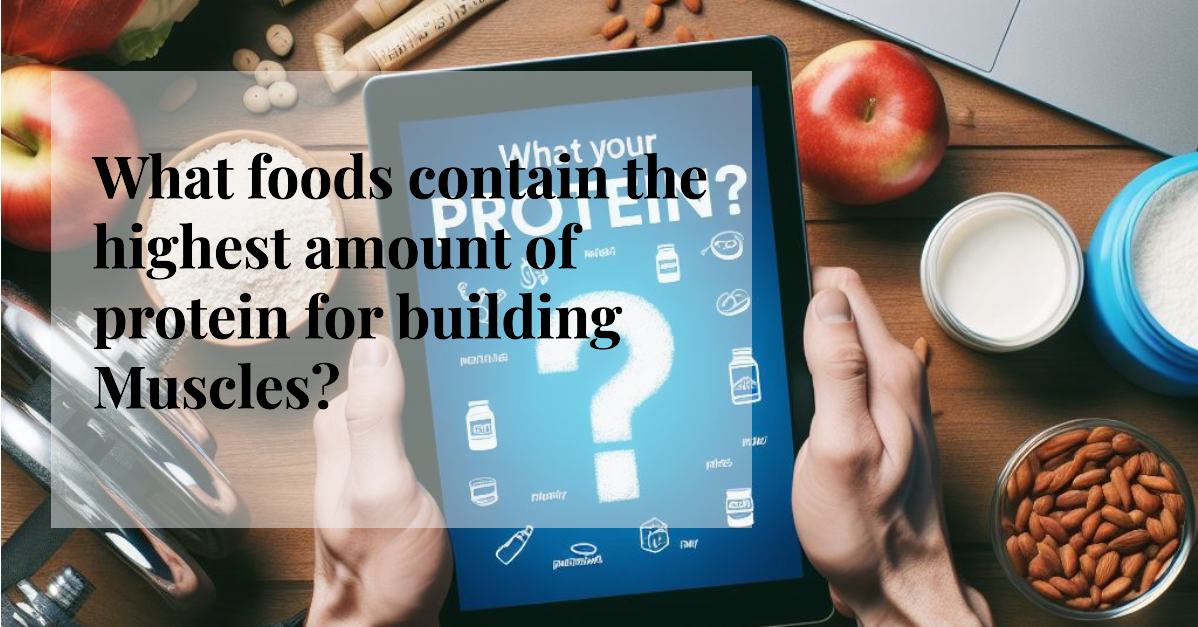When it comes to building muscles, we all know that protein is crucial. But do you know which foods provide the highest amount of protein to support your muscle growth?
In this article, we will explore the best protein sources that can help in building muscles. You will discover protein-rich foods that can aid in muscle development and understand how they play a vital role in muscle repair and growth. Whether you follow an animal-based or plant-based diet, we’ve got you covered with a variety of options to fuel your muscle-building journey.
Key Takeaways:
- Protein-rich foods are essential for muscle growth and repair.
- The right amount of protein intake is crucial for optimizing muscle development.
- Both animal-based and plant-based protein sources can provide the necessary nutrients for building muscles.
- Lean meats, poultry, fish, dairy products, legumes, tofu, tempeh, and quinoa are some of the best protein sources for muscle building.
- Incorporating a variety of protein-rich foods into your diet can help you achieve your muscle-building goals.

Understanding the Importance of Protein for Muscle Building
When it comes to achieving optimal muscle growth, protein plays a vital role in supporting your fitness goals. Whether you’re a professional athlete or a fitness enthusiast, understanding the importance of protein-rich foods in your diet is key to maximizing your muscle-building potential.
Protein is made up of amino acids, which are the building blocks of muscle tissue. When you engage in strength training or other forms of exercise, your muscles undergo stress and microscopic damage. Protein is essential for repairing damaged muscle fibers and promoting their growth, enabling you to build lean muscle mass.
Additionally, protein aids in muscle recovery by reducing muscle soreness and inflammation. It helps replenish energy stores and supports the synthesis of new muscle tissue, allowing you to bounce back more quickly from intense workouts. This is especially crucial for individuals looking to optimize their training and maintain consistency in their fitness routine.
Moreover, protein-rich foods help regulate hormone production, including testosterone and growth hormone, which are crucial for muscle growth. These hormones promote protein synthesis and increase muscle protein turnover, contributing to greater muscle gains.
By incorporating high protein foods into your diet, you can ensure that your muscles receive the necessary nutrients for optimal growth and recovery. However, it’s important to note that the quality of protein matters. Complete protein sources, such as those found in animal-based products, provide all essential amino acids required for muscle building. Plant-based sources can also be excellent options, but it’s important to combine different plant foods to ensure you get a complete amino acid profile.
Now that we understand the role of protein in muscle building, let’s delve into the specific protein-rich foods that can accelerate your muscle growth and help you achieve your fitness goals.
Top Protein Sources for Muscle Building
When it comes to building muscles, incorporating protein-rich foods into your diet is crucial. Protein is the building block for muscle growth and repair, making it essential for anyone looking to enhance their physique and strength. In this section, we will explore the best protein sources that can support your muscle-building journey.
Animal-Based Protein Sources
Animal-based protein sources provide high-quality protein and essential amino acids necessary for muscle development. These foods offer complete protein, which means they contain all the essential amino acids needed by the body. Here are some excellent animal-based protein sources:
- Lean meats: Chicken breast, turkey, lean beef, and pork loin are excellent sources of high-quality protein.
- Poultry: Chicken and turkey are lean sources of protein that are low in fat and rich in nutrients.
- Fish: Salmon, tuna, and trout are not only rich in protein but also provide omega-3 fatty acids that aid in muscle recovery and reduce inflammation.
- Dairy products: Milk, yogurt, and cottage cheese are rich in protein and contain calcium, which supports muscle function.
Plant-Based Protein Sources
Plant-based protein sources are excellent alternatives for individuals following a vegetarian or vegan diet. These foods are not only rich in protein but also offer various other essential nutrients. Here are some plant-based protein sources:
- Legumes: Lentils, chickpeas, black beans, and edamame are packed with protein and fiber, making them excellent choices for muscle growth.
- Tofu and tempeh: These soy-based products are rich in protein and can be used as meat substitutes in various dishes.
- Quinoa: This grain is a complete protein source and also provides essential amino acids, making it an ideal choice for muscle building.
- Nuts and seeds: Almonds, walnuts, chia seeds, and hemp seeds are protein-rich foods that also provide healthy fats for overall well-being.
By including a combination of animal-based and plant-based protein sources in your diet, you can ensure that you are getting a wide range of nutrients to support muscle development. Experiment with different protein sources and incorporate them into your meals for optimal results in your muscle-building journey.
Animal-Based Protein Sources
When it comes to building muscles, animal-based protein sources are an excellent choice. These foods provide high-quality protein and essential amino acids that are necessary for muscle growth and repair. Incorporating lean meats, poultry, fish, and dairy products into your diet can help you achieve your muscle-building goals.
“Animal-based protein sources provide high-quality protein and essential amino acids necessary for muscle growth.”
Leveraging Lean Meats
Lean meats, such as chicken breast, turkey, and lean cuts of beef, are packed with protein and make for a delicious and nutritious addition to your muscle-building diet. They are low in fat and rich in amino acids, making them an ideal choice for fueling muscle growth.
Poultry: Your Protein Powerhouse
Poultry, including chicken and turkey, is another fantastic source of protein. These lean meats are not only high in protein but also low in fat. Whether you prefer grilled chicken breast or roasted turkey, these protein-packed foods offer the essential nutrients your muscles need for optimum growth.
Fish: A Bounty of Benefits
Fish is an excellent choice for muscle-building, thanks to its high protein content and omega-3 fatty acids. Salmon, tuna, and cod are great options to consider. Omega-3 fatty acids offer anti-inflammatory properties, supporting muscle recovery and reducing exercise-induced muscle damage.
Dairy Delights
Dairy products like milk, yogurt, and cheese are not only delicious but also rich in protein. They provide amino acids necessary for muscle repair and growth. Greek yogurt, in particular, is a standout choice due to its higher protein content. Include dairy in your diet to ensure you’re getting a good balance of protein and essential nutrients for muscle building.
| Animal-Based Protein Sources | Protein Content (per 100g) |
| Chicken Breast | 31g |
| Turkey | 29g |
| Lean Beef | 26g |
| Salmon | 22g |
| Tuna | 30g |
| Cod | 18g |
| Greek Yogurt | 10g |
| Cottage Cheese | 11g |
By including a variety of animal-based protein sources in your diet, you can ensure that your muscles receive the nutrients they need to thrive. These protein-packed foods will support your muscle-building journey and help you achieve your fitness goals.
Plant-Based Protein Sources
For individuals following a vegetarian or vegan diet, there is a wide range of plant-based protein sources available that are packed with nutrients and support muscle growth. Including these protein-rich foods in your diet can provide you with the essential amino acids necessary for building and repairing muscles.
Legumes
Legumes, such as lentils, chickpeas, and beans, are excellent sources of protein. They are not only rich in protein but also high in fiber, vitamins, and minerals. Incorporating legumes into your meals can help boost your protein intake and contribute to muscle-building efforts.
Tofu and Tempeh
Tofu and tempeh are popular plant-based protein options. Made from soybeans, these versatile ingredients can be used in a variety of dishes. They provide a significant amount of protein and are also great sources of iron and calcium, which are essential for overall health.
Quinoa
Quinoa is a unique plant-based protein source as it is a complete protein, containing all nine essential amino acids. It is also high in fiber and packed with nutrients like magnesium, iron, and folate. Adding quinoa to your meals can help meet your protein needs and support muscle growth.
Other Plant-Based Protein Foods
In addition to legumes, tofu, and quinoa, there are many other plant-based foods that can provide a considerable amount of protein. These include:
- Nuts and seeds
- Brown rice
- Chia seeds
- Hemp seeds
- Seitan
- Spirulina
By including these protein-rich foods in your diet, you can ensure that you are getting the necessary nutrients for muscle growth while following a plant-based lifestyle.

| Plant-Based Protein Sources | Protein Content per 100g |
| Lentils | 9g |
| Chickpeas | 19g |
| Black beans | 21g |
| Tofu | 8g |
| Tempeh | 19g |
| Quinoa | 4g |
| Almonds | 21g |
These values are approximate and may vary depending on the specific brand and preparation method.
Conclusion
Incorporating protein-rich foods into your diet is crucial for muscle building. Whether you prefer animal-based or plant-based protein sources, both can provide the necessary nutrients to support muscle growth and recovery. By including a variety of these foods in your meals, you can optimize your muscle-building journey and achieve your fitness goals.
Animal-based protein sources such as lean meats, poultry, fish, and dairy products are excellent choices for muscle building. They are packed with high-quality protein and essential amino acids that contribute to muscle development.
For individuals following a vegetarian or vegan diet, plant-based protein sources like legumes, tofu, tempeh, and quinoa provide ample amounts of protein. These foods can help meet your protein requirements and support muscle growth without relying on animal products.
FAQ
What role does protein play in muscle building?
Protein is crucial for muscle building as it provides the building blocks needed for muscle growth and repair. When you engage in resistance training or other forms of exercise that challenge your muscles, protein helps repair and build new muscle tissue, leading to muscle growth.
How much protein do I need for muscle building?
The amount of protein you need for muscle building depends on several factors, including your body weight, activity level, and individual goals. As a general guideline, it’s recommended to consume around 1.2 to 2 grams of protein per kilogram of body weight per day. However, it’s important to consult with a healthcare professional or registered dietitian to determine your specific protein needs.
What are some high-protein animal-based foods for muscle building?
Animal-based protein sources that are excellent for muscle building include lean meats such as chicken, turkey, and beef, as well as fish, eggs, and dairy products like Greek yogurt and cottage cheese. These foods are not only rich in protein but also provide essential amino acids necessary for muscle growth and repair.
Can plant-based foods provide enough protein for muscle building?
Yes, plant-based foods can indeed provide enough protein for muscle building. Legumes such as lentils, chickpeas, and black beans, as well as tofu, tempeh, and quinoa, are excellent plant-based protein sources. Additionally, you can combine different plant-based proteins throughout the day to ensure you’re meeting your protein needs.
Are protein supplements necessary for muscle building?
Protein supplements, such as protein powders, can be a convenient way to supplement your protein intake, especially for those who may struggle to meet their protein needs through whole foods alone. However, it’s important to note that whole food sources should always be the primary focus and that supplements are not necessary if you can meet your protein requirements through a well-balanced diet.
- 10 Best Protein Foods for Muscle Growth - 19 September 2025
- The Hidden Vitamin That Can Save Your Heart - 21 August 2025
- Flax Seed in Urdu السسی کے فائدے - 8 July 2025










